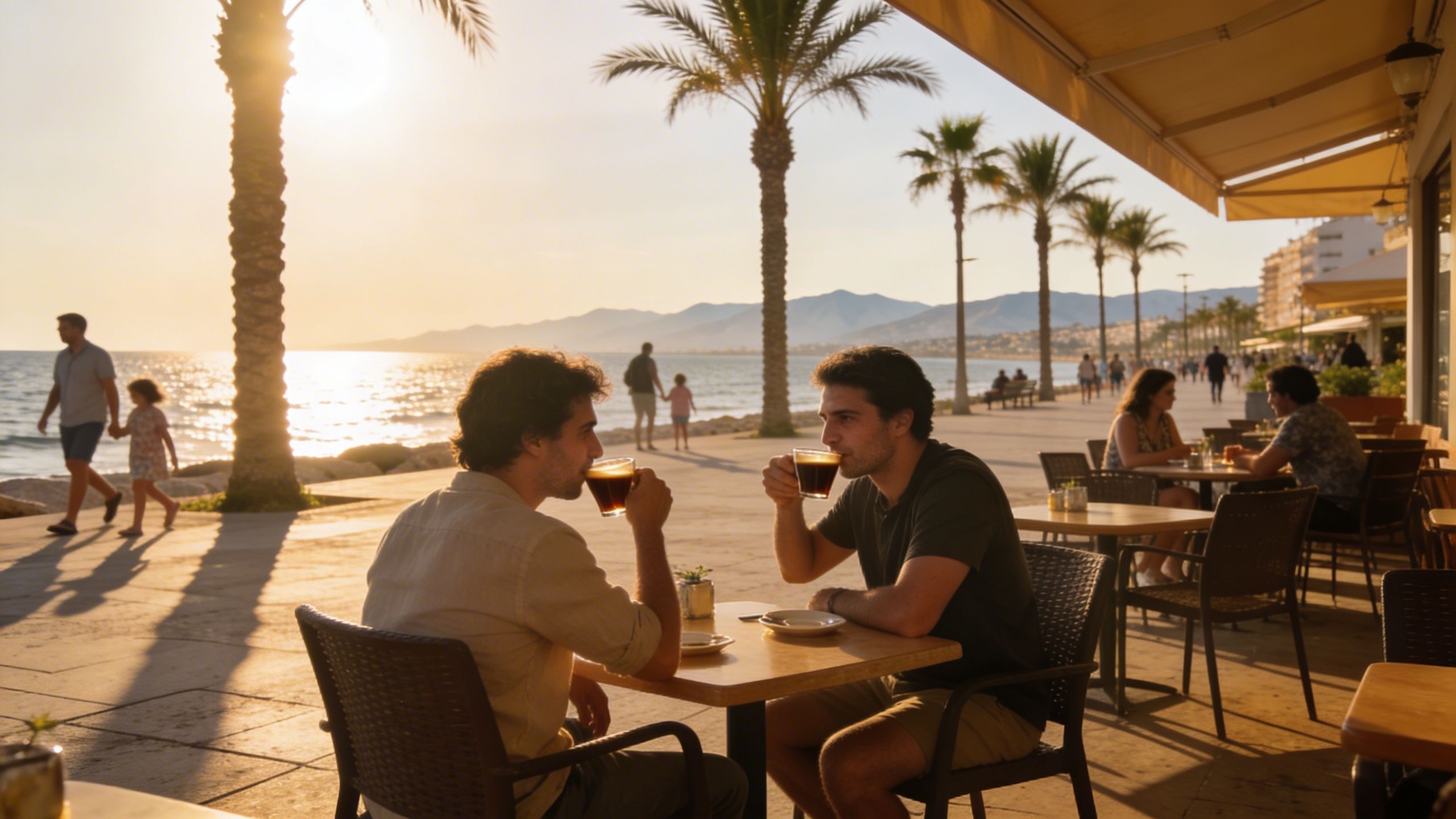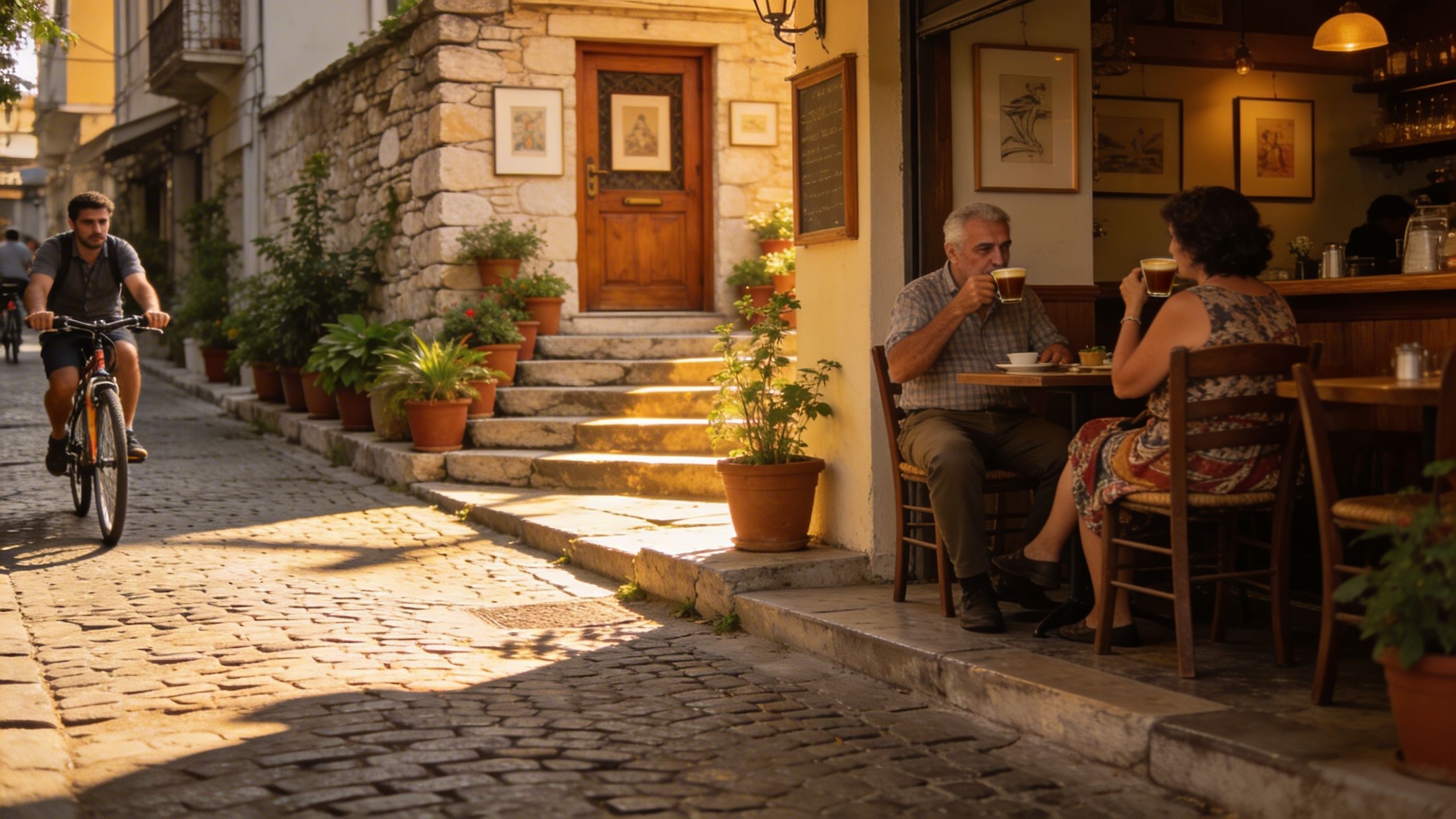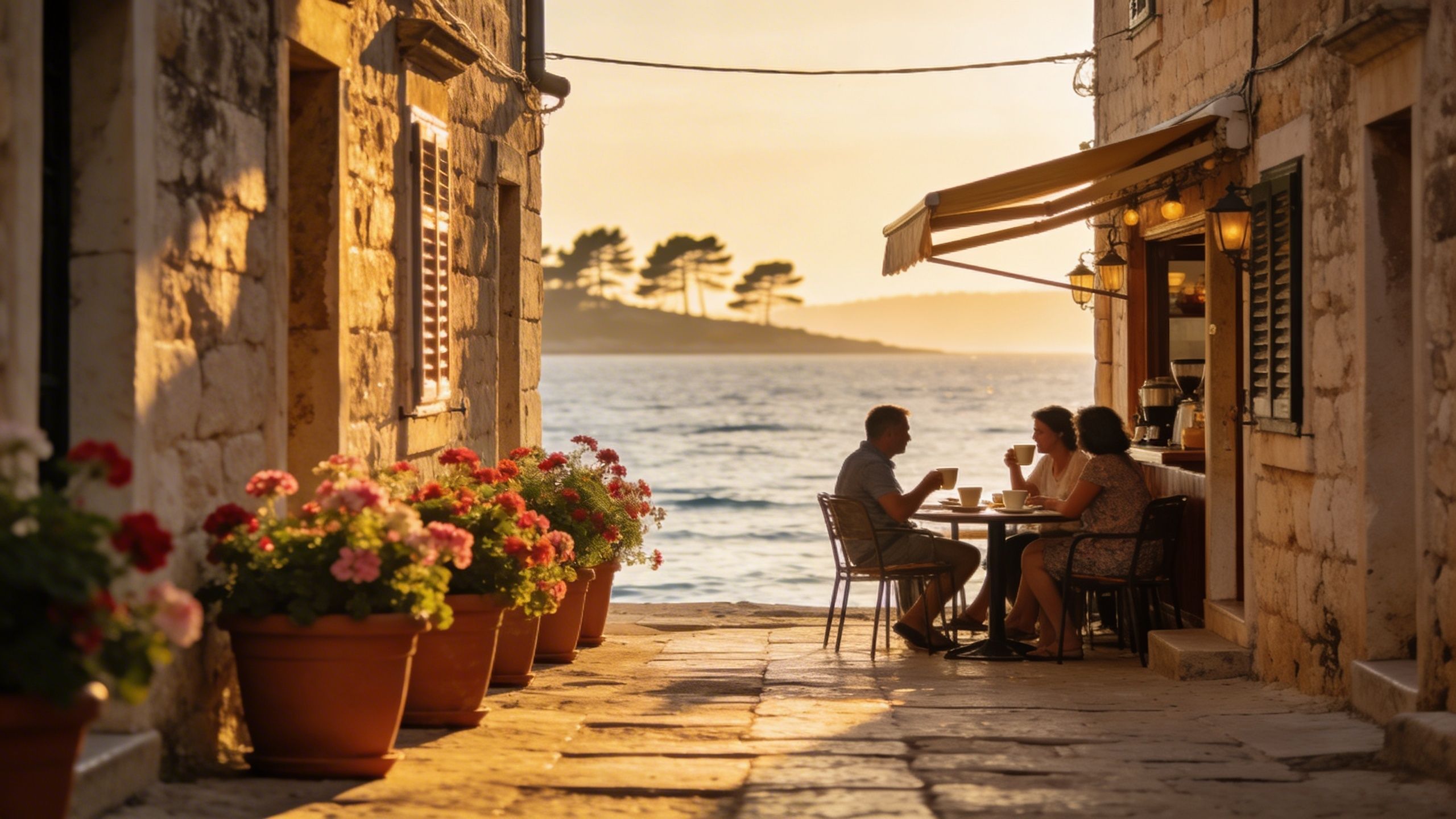Croatia: Love the Life, Then Lock the Legal Details
Fall in love with Croatia’s coast, islands and olive‑groves — then protect the dream with targeted due diligence: permits, title checks, and realistic rental assumptions.
Imagine walking the sun-warmed quay of Split at dusk, the scent of grilled fish and pine in the air, then turning down Ulica bana Jelačića to a narrow lane where a fourth‑century stone house meets a terraced garden. That sensory clarity — sea, texture, human rhythm — is why buyers dream of Croatia. But dream and deed are different: permits, coastal protections, and a shifting short‑term rental landscape quietly reshape what’s possible. This guide pairs those golden, place-first moments with the exact due diligence steps you’ll need to protect both the lifestyle and your investment.
Living the Croatian lifestyle
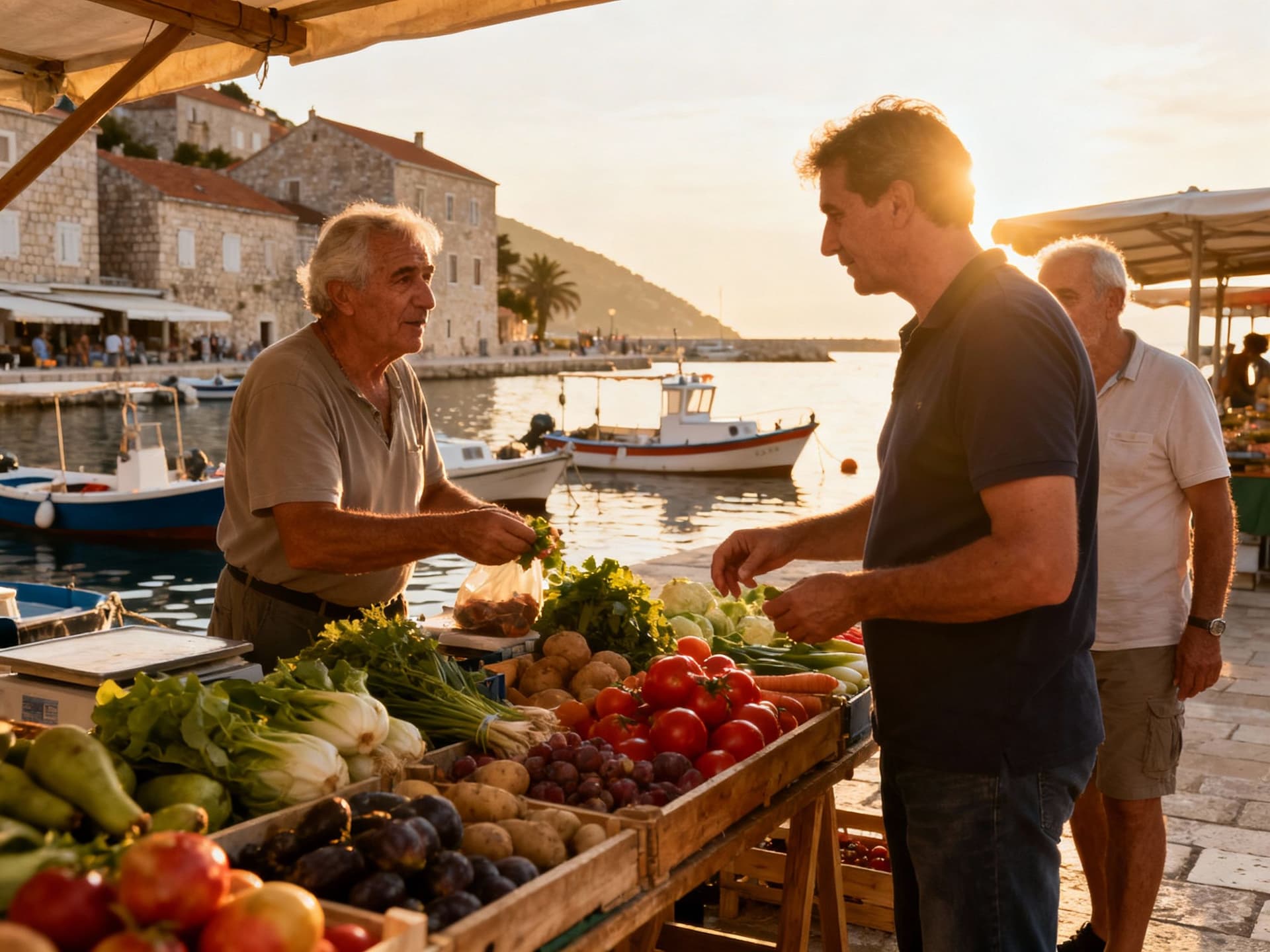
Croatia’s daily rhythm feels like a slow-motion film: morning markets in Dolac (Zagreb) or Pazar (Split), mid-afternoon espresso at a konoba where fishermen trade gossip, and evenings that unwind along the Riva. Life here stitches together Mediterranean light, a deep coastal fishing tradition, and the quieter green hinterland of Istrian olive groves and Pelješac vineyards. For international buyers, that means choosing not just a property but a tempo — town squares and narrow alleys offer convivial human contact, while hilltop villas buy solitude and sweeping sea views.
Split & Diocletian’s ring: everyday life on ancient streets
In Veli Varos and the neighborhoods around Diocletian’s Palace, mornings bring bakers, the smell of burek, and stairways that open onto secret terraces. Apartments here often retain thick stone walls and small courtyards; they live cool in summer and hum with neighbourhood life. If you crave immediacy — cafés, ferry links to islands like Brač and Hvar, and people on the street — these lanes are addictive. Practical note: historic centres often carry strict heritage rules and permit requirements for renovations, so expect slower, permit‑heavy projects.
Istria & Dalmatian countryside: olive groves, truffles, and quieter stewardship
Move inland and the island cadence softens into olive-scented lanes, stone farmhouses, and small agritourism enclaves. Places like Motovun (Istria) or Konavle (near Dubrovnik) reward hands‑on buyers who want to garden, press olive oil, or cultivate a small vineyard. These properties often come with land‑use classifications, water rights questions and agricultural restrictions — aspects that become part of daily life if you intend to farm, restore, or operate a guesthouse.
- Local lifestyle highlights:
- Morning farmers’ markets (Dolac, Split Pazar), seaside promenades (Riva, Korčula), island day‑trips to Pakleni Otoci, Istrian truffle fairs, small konobas serving fresh catch, community olive harvests and local winemakers in Pelješac.
Making the move: practical considerations
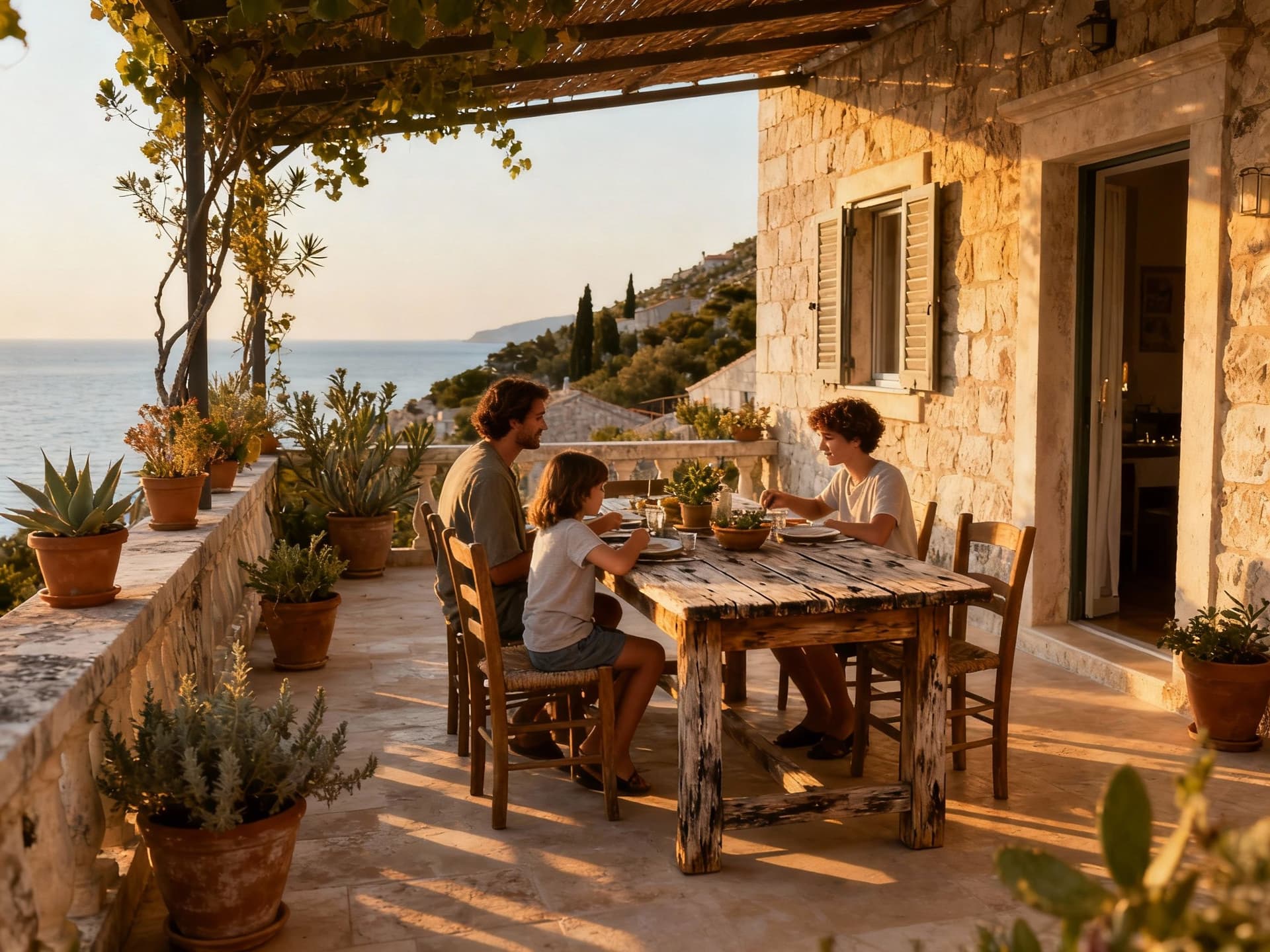
The Croatian market has seen brisk price growth along the coast and in regional centres — the Croatian Bureau of Statistics recorded double‑digit annual increases into 2025 — and that strength has rippled into buyer rules and local regulation. Simultaneously, national discussion and draft laws on short‑term tourist rentals aim to protect housing for residents, which may affect yields if you planned to rely on Airbnb. These macro signals change what makes sense: buy for lifestyle first, and model any income as conservative.
Property types and how they shape life
A coastal apartment gives you walking access to cafés and ferries; a renovated stone house offers thermal mass and character; a new build can bring insulation, solar readiness and modern systems. If sustainability matters, prioritise south‑facing windows, stone or wood materials, and space for rainwater capture and photovoltaics. Historic buildings call for sensitive retrofits — think lime mortar, breathable insulation and local craftsmen — and always confirm whether the municipality allows the upgrades you plan.
Working with local experts who protect lifestyle aims
- Steps to align the life you want with legal reality:
- 1) Start with a local agent versed in municipal planning rules and coastal protection; 2) Commission a land‑registry (Zemljišna knjiga) title search and check for encumbrances; 3) Order a structural and services inspection with sustainability options noted; 4) Verify building/usage permits and historic‑preservation constraints; 5) Model rental income assuming stricter short‑term rules; 6) Consult a notary and tax advisor on VAT, transfer tax and reciprocity rules for non‑EU buyers.
Insider knowledge: what expats wish they'd known
Expats often tell the same story: the country’s warmth and simplicity are immediate, while the bureaucracy and seasonality are slower lessons. You’ll love local rituals — shared markets, seaside aperitifs, neighbourly help — but be prepared for slower municipal timelines, a preference for paper records, and periods in winter when seaside towns close down. A local advisor who reads municipal gazettes and speaks to the utility company is worth their weight in olive oil.
Cultural integration and daily life
Croatian social life values directness and reciprocity: small favours are paid back with invitations; language learning opens doors to neighbours and craftsmen; and participating in local festivals — from stargazers’ nights in Istria to summer klapa singing — cements belonging. Practical tip: invest time in learning basic Croatian phrases; people appreciate the effort and it simplifies permit conversations in smaller municipalities.
Long‑term stewardship: beyond buying
Think of a Croatian property as a stewardship project. Plan for seasonal maintenance (salt air on coastal metals, roof checks after winter storms), and consider regenerative choices like olive trees, native plantings to reduce irrigation, and PV arrays sized for part‑time occupancy. Over time these decisions preserve value and strengthen your relationship with place — neighbours notice and appreciate visible care for the land.
- Red flags and quick checks before you bid:
- Missing or unclear building permits; disputed land registry entries; properties without clear access rights; coastal setbacks that prevent intended upgrades; and listings promising 'high tourist yield' without paperwork—especially important as rental rules tighten.
Croatia’s coastal charm is real, but recent price growth and regulatory shifts mean due diligence is not optional. Use local experts, verify permits and title, and design for sustainability from day one — that way you secure both the life you imagined and the legal certainty to enjoy it for decades.
If you’re ready to take a first practical step: compile a shortlist of three neighbourhoods that match your tempo, ask a local agent for recent building‑permit records and municipal plan excerpts, and commission a registered survey and structural inspection before making offers. Those three small investments save months of grief and align your dream with reality. When you’re ready, Moss & Hearth partners can introduce vetted local specialists who blend place‑sensitivity with legal rigor — because a home in Croatia is a life lived in season, not a fleeting purchase.
Norwegian market analyst who relocated from Oslo to Provence; guides investors with rigorous portfolio strategy and regional ecological value.
